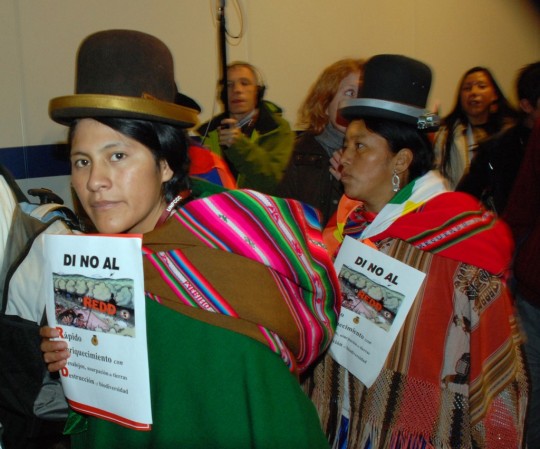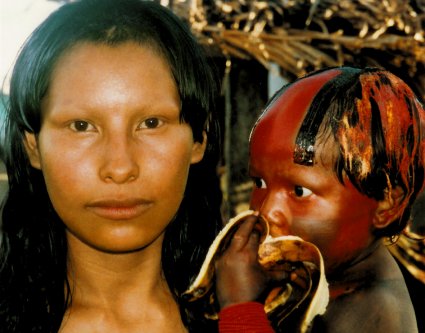Three Indigenous Nations in Altamira area, Para, signed REDD contracts with Carbon Cowboy: Benedito Milleo Junior; A Representative from TopoGeo
March 28, 2012
By Rebecca Sommer
Iwas in the city of Altamira, the Amazon area in the state of Para, preparing to leave the next day. It was with a knot in my throat when I promised the young chief of one of the three indigenous nations in this area that had signed REDD contracts, not to reveal their identity.For years I have tried to inform indigenous peoples about the lies and wrongs that one day soon they will be told in order to obtain their consent for REDD projects on their indigenous territory.
But it is indeed a very abstract issue, and unfortunately, my explanation had no effect on this particular young chief, and other young leaders that were standing in a circle around me, with their REDD contract signed, in their hand, in June 2011.
They were worried, thus the reason why they approached me with the contract. They trusted me enough to allow me to photograph it. (To view the original contract in Portuguese with the names that could identify the indigenous nation removed CLICK HERE)
The young leaders wanted to know what the contract actually said, as they admitted, it wasn’t exactly clear to them.
The first thing that I spotted was that the contract was signed by an individual and not by a company. Benedito Milleo Junior.
The chief showed me Benedito Milleo Junior’s business card.
[TopoGeo | Surveying and Geo-referenced GIS | Annotation Legal Reserve IBAMA and IAP | Accredited at INCRA under Code APO | Benedito Milleo Junior | Agronomist | Federal Judicial Expert | CREA 13.062/D-PR]I asked the young leaders why they thought he had signed as an individual, while they had to sign with their positions, under their Indigenous Association.
They did not know why.
I ask them if they knew this (sinister) gentlemen, and asked about the location of his companies’ office.
“He lives in a rather shabby house in Altamira, with no sign or logo of his company. We wondered about that. But he promised to pay us a lot of the money in June 2012.” said the young chief. →







